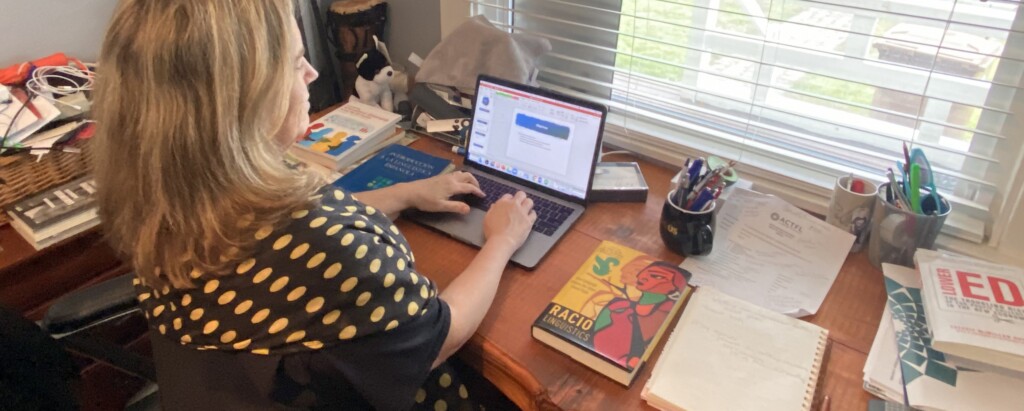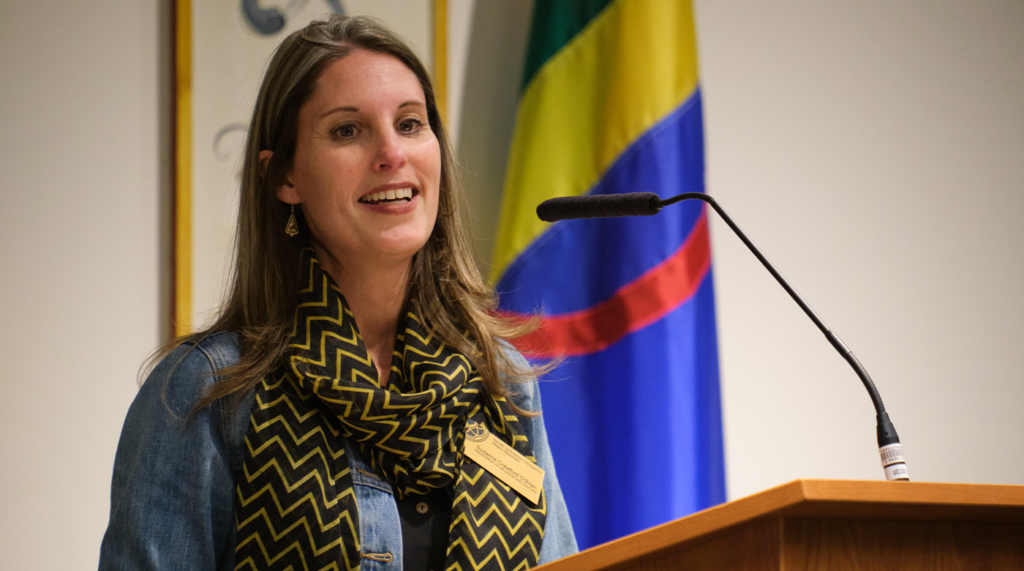Page 70 • (752 results in 0.026 seconds)
-

TACOMA, WASH. (Nov. 17, 2016)- Editor’s note: A group of Pacific Lutheran University students volunteered in a TV newsroom on election night, as they have for every election in newsrooms across the region since the early 2000s. Here is a first-hand, real-time account from one…
fail me. Hill, the news director, practically leaps into the center of the room. “How’s everyone doing tonight?” she asks. “We’re doing our jobs — we’re journalists first, everyone. Let’s put on a professional and fair show!” Everyone here, myself included, needed to hear that. I walk into her office and ask for any words before we go. It’s not confirmed if Trump will be the next president, but chances aren’t looking good for Clinton. My team wants to get back to campus and call friends and family
-

TACOMA, WASH. (March 13, 2017)- Hop on my pink tour bus and let me tell you about the craziest days I experienced this past January — or the days we called the Choir of the West Southwest Tour (for hashtag purposes, #COWthwesternTour). Over 11 days,…
before coming to PLU. Luckily now, after completing my first one in 2015 during a University Chorale tour, staying in a stranger’s home didn’t seem as scary. Homestays are important because they allow us to get to know the community, and vice versa. My homestay partner and I enjoyed staying up a bit after the concert and just talking with our homestay family. We exchanged pictures of our animals, talked about our common likes and dislikes, and discussed the most important part of life — breakfast
-

Dear Campus Community: This morning, the White House announced a plan to rescind the Deferred Action for Childhood Arrivals (DACA) program in six months. I want to affirm to you that PLU remains firmly committed to the well being of ALL of our students, regardless…
Washington, all of our students, regardless of their immigration status, are invaluable to the teaching we provide in our classrooms, the research we perform in our labs, and the discoveries we make in medicine. These students and those who came before them are not strangers on our campuses, in our communities, and in our homes. They are our [children], our neighbors, our co-workers, our friends and our family. They are us.” At PLU, it’s ingrained in our mission to educate and sustain communities through
-

TACOMA, WASH. (Jan. 25, 2018)— As a resident assistant in Harstad Hall at Pacific Lutheran University, Tegan Mitchell ’18 hosts events, conducts regular check-ins and is a general resource for the residents who live in her wing. “But on a daily basis I really only…
these are students who haven’t had experience with reaching out and asking for help for themselves,” Mitchell said. “And much of the time that is because they haven’t had those resources available to them.” SCN helps students on multiple levels, from those who may suffer from diminished mental health to students struggling with academics, and everything in between. Issues that arise could include a death in the family, sleeping through a lecture, failing a class or financial aid worries. In an era
-

TACOMA, WASH. (March. 25, 2020) — Distance learning and teaching can feel isolating at times. PLU Professor of Hispanic Studies Bridget Yaden has been combating these potential limitations by using different technological tools to make her virtual classroom as accessible and accommodating as possible. The…
key — not overwhelming students, but communicating regularly. Some challenges they identify include “having a hard time concentrating on my work at home since my whole family is home working/doing school.” Another recognized that their classmates might be struggling because “While some students have the resources to keep a relatively normal schedule, some students do not have that luxury.” I will reiterate with my students going forward that they can watch the Zoom lessons offline if the
-

During her senior year at PLU, Chloe Willburn ‘21 wanted to intern with the Washington State Department of Children, Youth, and Families. As a social work major, Willburn believed that the experience gained from working alongside DCYF would benefit not only her but her future…
competitive advantage when entering the workforce, but research from 2019, shows that 43 percent of internships at for-profit companies often go unpaid. This creates an advantage for students from privileged backgrounds as they are more likely to accept these positions while getting financial assistance from family. Meanwhile, students from lower-income communities can find experiences like these far out of reach. With the students’ recommendation, PLU launched the Student Ambassador Program to educate
-

At PLU, we’re building up the next generation of Lutes — ones who will be called to lead us into an uncertain future. On Bjug Day you joined together in ensuring students are fully equipped to answer that call. Despite navigating a global pandemic, we…
technologies. It was a huge lift, and I was so impressed by the good work they did. And our students! This was a really tough year—many of our students were caring for family, working extra hours, attending classes online, or dealing with isolation. It was tough. I was so proud of how they pushed through, created spaces for online community, kept in touch in safe ways, and kept moving forward. What are the benefits of having interdisciplinary programs? Interdisciplinary programs are where students
-

During his senior year, computer science major Adrian Ronquillo ’22 filled out 203 job applications. Despite already having a job offer from a tech company he was interning with, he wanted to see what other opportunities were available to him. One of those applications included…
. JOB HUNT BUFFERING Ronquillo grew up in Ketchikan, Alaska in a close Filipino family. He grew up playing music and initially thought he would pursue it as a career. It was his love of music that brought him to Pacific Lutheran University. “I saw that PLU had an awesome music program, so I was like ‘Yeah, I think I’m going to PLU,’ ” he said. “But then I decided to change my major to computer science because I just realized that I like making games and websites. For some reason, sitting down at
-

Maria Surla has traveled a long and rewarding road. The 39-year-old recently graduated with PLU’s Class of 2023 with a Bachelor of Science in Nursing. “The difficult experiences I’ve had made me who I am now,” Surla says. Born and raised in the Philippines, Surla…
research and explores the challenges of moral distress in correctional settings, particularly in comparison to traditional settings. Surla also offers policy recommendations and ways to combat moral distress in real time, including peer support and self-assessment tools. Surla is the first of her family to graduate from college. Her existing nursing background helped her navigate PLU’s classes. Over time, she had to develop an effective approach for school, including being organized and reaching out
-

Cheri Souza’s philanthropy leadership is motivated by the responsibility she feels to serve her Hawaiian community. When Cheri Souza ’01, MBA ’03 first stepped onto campus at Pacific Lutheran University, the undergraduate from Hawai‘i could not have imagined her future would include redefining philanthropic efforts…
. During COVID, she was recruited to the University of Hawai‘i Community Colleges Office, where she co-led a grant-funded statewide initiative aimed at increasing the college-going rate of Hawai‘i high school graduates. That is how Souza discovered the Stupski Foundation. Larry and Joyce Stupski established the foundation with a vision based on justice, equity, and community. The foundation’s work focused on the communities the Stupski family called home — the San Francisco Bay Area and Hawai‘i. The
Do you have any feedback for us? If so, feel free to use our Feedback Form.


